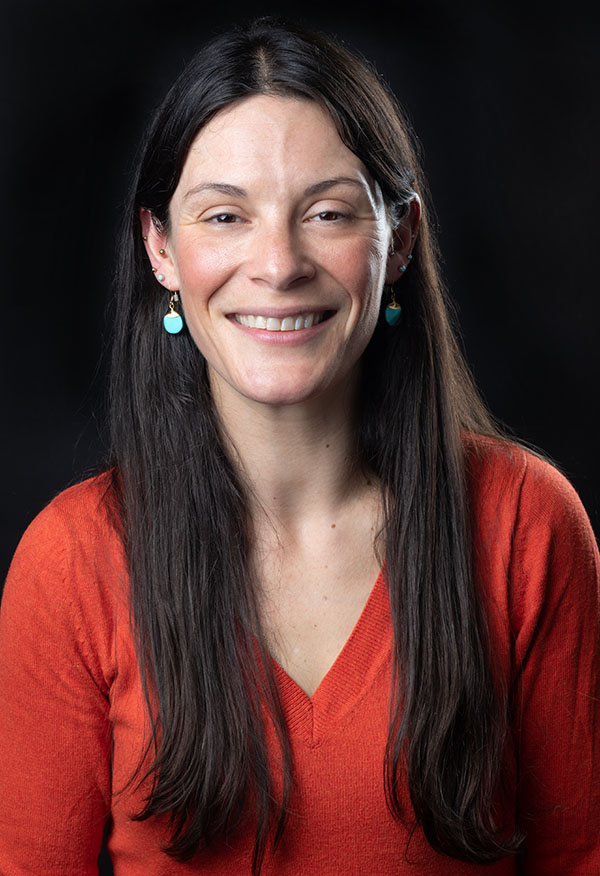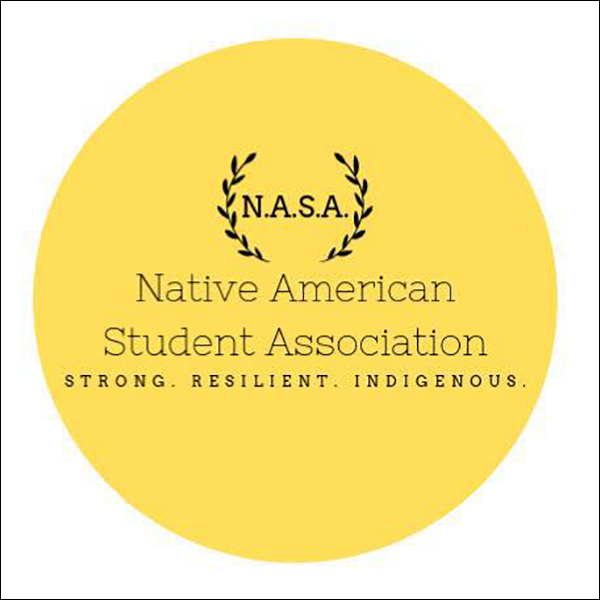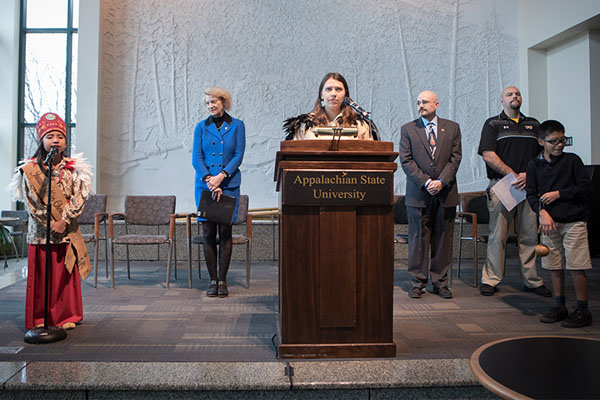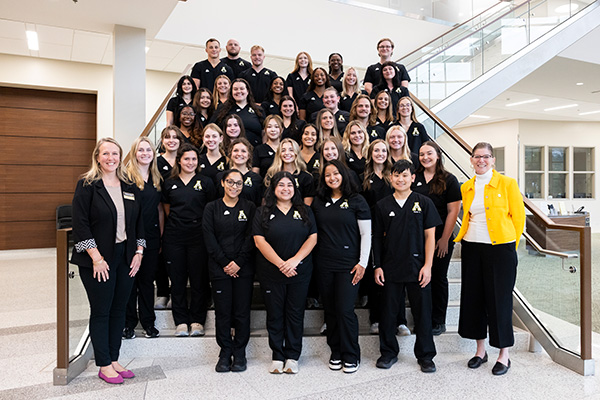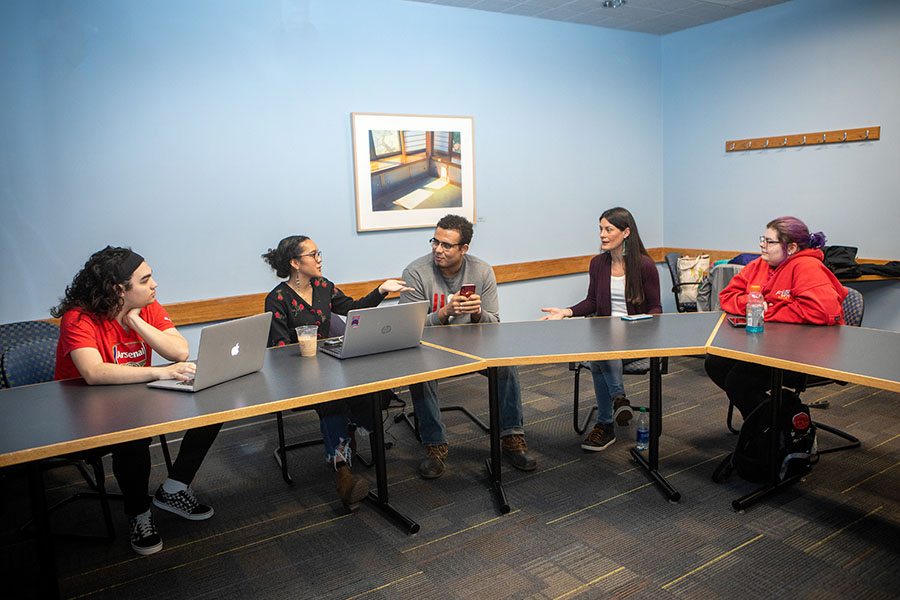
Rachel Fried, second from right, with officers in the Native American Student Association (NASA) on campus at the start of spring semester 2020. Students pictured, from left: Bailey Chavis (nation: Lumbee), NASA vice president; Tori Hunt (nation: Lumbee), NASA president; David Williams (nation: Lumbee), NASA vice president of internal affairs; and Anya Walsh (nation: Eastern Band of Cherokee Indians), NASA vice president and treasurer. Photo by Marie Freeman
BOONE, N.C. — Staff member Rachel Fried, adviser for Appalachian’s Native American Student Association (NASA), enjoys building bridges at Appalachian State University to improve understanding of modern Native Americans — including those drawn to Appalachian.
A total of 59 Appalachian students identified as Native American in fall 2019 — a 34% increase since fall 2014. With increasing numbers of Native American students on campus, Fried has been instrumental in broadening awareness of them and their families, as well as what they need during college.
“I want to create open, friendly dialogue,” said Fried, who frequently makes presentations and leads conversations on campus. “I want to help people know what they don’t know. It helps our students and it helps us all be better people.”
Fried has been working closely with the Office of the Chief Diversity Officer and Intercultural Student Affairs to reverse incorrect assumption-making so Native American students can be better served. She also facilitates conversations between faculty and students if a classroom conflict arises.
Fried has helped other universities expand recruitment and understanding of Native Americans. Of Appalachian, she said, “This is an amazing institution. Appalachian is uniquely positioned to dive in and do this work well.”
Appalachian already has “a lot going that we can talk about with prospective students who are Native American: faculty teaching indigenous studies courses, events related to Native Americans, NASA and Native American faculty and staff. Chief Diversity Officer Willie Fleming has been extremely supportive of this work, and I’m excited to keep doing this work with him,” she said.
Fried said misconceptions about Native Americans persist, based in part on narratives in history books. Among these: Native Americans no longer exist, have been “bred out” or all reside on reservations.
“Only approximately 20% of Native Americans live on reservations or other indigenous lands. The rest of us are your neighbors in rural communities, cities and in the suburbs,” she said.
To help others become more aware of Native Americans and end stereotyping, Fried offers the following information:
- The Native American population is incredibly diverse, she said. Its forms of identity go beyond race and ethnicity since Native American individuals are citizens of their tribal nations as well as of the U.S.
- Think individually. “There is no singular ‘Native culture.’ We are from hundreds of nations, each with distinct cultures, traditions and spiritual practices,” she said.
- Recruit differently. Due to the complex identity of Native American students, the most effective recruitment methods include showcasing Native American-specific aspects of campus — such as student groups or a center. Language matters, too, said Fried — the words “multiculturalism” or “diversity,” for example, are not terms all Native American students connect with.
- Use Fried as a resource to become educated about Native Americans. Sometimes Native American students become frustrated having to explain their identity to non-Native Americans, Fried said. Therefore, she said she is happy to be a point of contact for anyone with questions about the population.
Fried works in Appalachian’s College Access Partnerships.
What do you think?
Share your feedback on this story.
About Appalachian State University
As a premier public institution, Appalachian State University prepares students to lead purposeful lives. App State is one of 17 campuses in the University of North Carolina System, with a national reputation for innovative teaching and opening access to a high-quality, cost-effective education. The university enrolls more than 21,000 students, has a low student-to-faculty ratio and offers more than 150 undergraduate and 80 graduate majors at its Boone and Hickory campuses and through App State Online. Learn more at https://www.appstate.edu.
